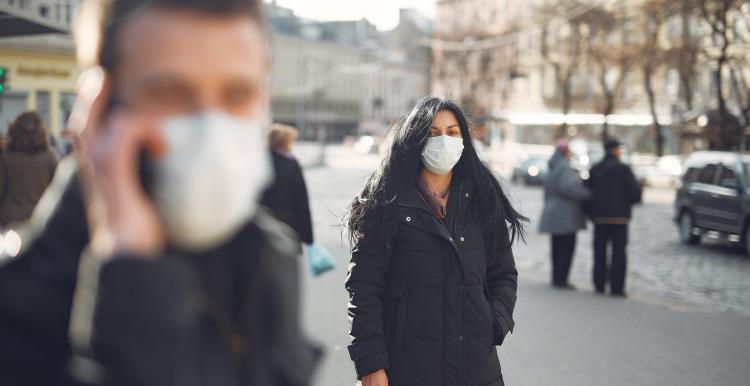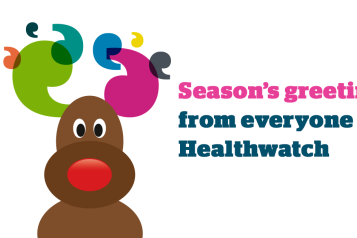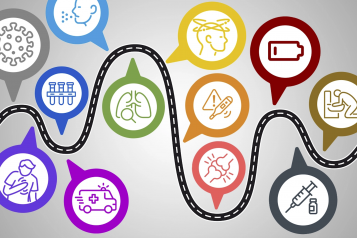Latest Information on Coronavirus - National Lockdown and Government launches coronavirus ad campaign

A major new public awareness campaign has been launched by the Government, urging people to behave like they are infected with coronavirus.
As case numbers surge, hospitals become swamped and deaths continue to rise, there have been growing fears that people have not been observing social distancing rules.
The campaign - made up of TV and radio adverts as well as a social media blitz - tells people to stay at home and "act like you've got it".
National lockdown: stay at home
Coronavirus (COVID‑19) is spreading fast.
Do not leave your home unless necessary.
1 in 3 people who have the virus have no symptoms, so you could be spreading it without knowing it.
What you can and cannot do during the national lockdown
You should follow this guidance immediately:
Leaving home
You must not leave, or be outside of your home except where necessary. You may leave the home to:
- shop for basic necessities, for you or a vulnerable person
- go to work, or provide voluntary or charitable services, if you cannot reasonably do so from home
- exercise with your household (or support bubble) or one other person, this should be limited to once per day, and you should not travel outside your local area.
- meet your support bubble or childcare bubble where necessary, but only if you are legally permitted to form one
- seek medical assistance or avoid injury, illness or risk of harm (including domestic abuse)
- attend education or childcare - for those eligible
Colleges, primary and secondary schools will remain open only for vulnerable children and the children of critical workers. All other children will learn remotely until February half term. Early Years settings remain open.
Higher Education provision will remain online until mid February for all except future critical worker courses.
If you do leave home for a permitted reason, you should always stay local in the village, town, or part of the city where you live. You may leave your local area for a legally permitted reason, such as for work.
If you are clinically extremely vulnerable you should only go out for medical appointments, exercise or if it is essential. You should not attend work
Meeting others
You cannot leave your home to meet socially with anyone you do not live with or are not in a support bubble with (if you are legally permitted to form one).
You may exercise on your own, with one other person, or with your household or support bubble.
You should not meet other people you do not live with, or have formed a support bubble with, unless for a permitted reason.
Stay 2 metres apart from anyone not in your household.
More information is available in the Government website.
Hands. Face. Space.
Approximately 1 in 3 people who have coronavirus have no symptoms and could be spreading it without realising it.
Remember - ‘Hands. Face. Space.’
- hands – wash your hands regularly and for at least 20 seconds
- face – wear a face covering in indoor settings where social distancing may be difficult, and where you will come into contact with people you do not normally meet
In all circumstances, you should follow the guidance on meeting others safely.
- space – stay 2 metres apart from people you do not live with where possible, or 1 metre with extra precautions in place (such as wearing face coverings)
Rules on self isolation
- If you test positive for COVID-19, you must self isolate for 10 days from when your symptoms started. Anyone you live with must self isolate for 14 days from when your symptoms started.
- If you are contacted by NHS Test and Trace and told you have been in close contact with someone who has tested positive for COVID-19, you must self isolate for 14 days. You should only book a free test if you develop any symptoms.
- The Government will be imposing fines starting at £1,000 and rising to £10,000 for those who do not follow the rules on self isolation. This will be enforced by the Police.
- Kingston council and other agencies will support you if you and your family need to self isolate. To find out what support and advice is available, visit www.connectedkingston.uk or call 020 8547 5000 or complete Kingston Council's support form at www.bitly.com/KingstonHelp
- The Government has announced financial support for those on low incomes and in receipt of benefits who cannot work from home if they are required to self isolate. More details will be made available as soon as we receive them.
People who are clinically extremely vulnerable are advised to follow the shielding guidance, which is to:
- stay at home
- don’t go to work/school or to the shops.
Guidance to the clinically extremely vulnerable has always been and remains advisory.
People who are clinically extremely vulnerable will be written to, setting out the new guidance. The letter will also act as a note to employers to say that, if they cannot work from home, they are advised not go to work. They may be eligible for Statutory Sick Pay, Employment and Support Allowance, Universal Credit or the Coronavirus Job Retention Scheme (furlough).
This guidance will remain in place until 18 January 2021, when it will be reviewed.
For the latest guidance visit: https://www.gov.uk/government/publications/guidance-on-shielding-and-protecting-extremely-vulnerable-persons-from-covid-19/guidance-on-shielding-and-protecting-extremely-vulnerable-persons-from-covid-19
NHS contact tracing app
- The NHS COVID-19 App was launched by the Government on 24 September. A range of businesses including hospitality venues, close contact services, community centres, libraries and places of worship are required by law to collect contact details for all their customers for NHS Test and Trace. The app will enable you to register your details with the venues you visit via your smartphone.
- If someone you have been in close contact with tests positive for the virus, and shares this information with the NHS Test and Trace app, you will receive an alert telling you to self isolate for 14 days.
- The more people who use the NHS Test and Trace app, the more the NHS will be able to track the virus and send alerts to those who may have been in contact with someone who has tested positive for COVID.
Latest government guidance
Staying safe outside your home - social distancing
Face coverings - when to wear one and how to make your own
Traveling abroad - rules on quarantining when you return home
Countries exempt from quarantine rules
- Find the latest health advice at www.nhs.uk/coronavirus
- Find government guidance, including guidelines on social distancing and how to protect yourself and others from the virus, at www.gov.uk/coronavirus.
- Find the latest Kingston council news on the news pages of their website.


